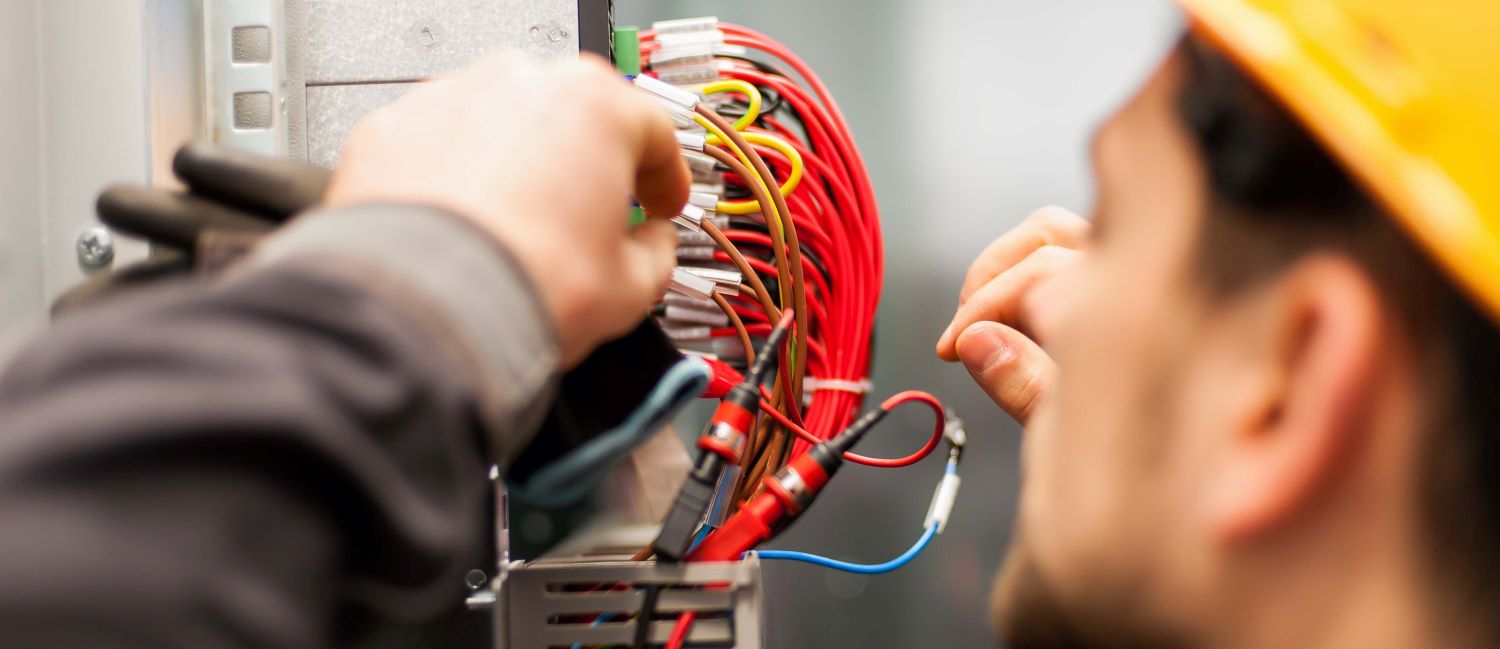How the knowledge gap threatens the electrical industry
The electrical industry is undergoing a major change. Today’s electricians are on the cusp of a technological revolution, delivering cutting-edge solutions that are transforming the way we live and work. However, this transformation presents a growing challenge - a widening knowledge gap between the rapidly evolving industry and the skill sets of some electricians – and it has the potential to cause huge problems in the future, writes John Ridgeway.
While there are not any comprehensive statistics quantifying the exact size of the knowledge gap, anecdotal evidence and industry discussions paint a concerning picture. A 2021 report by the Associated Builders and Contractors (ABC) highlights the challenges of attracting and retaining skilled workers in the electrical field. This shortage, coupled with the rapid pace of technological advancements, is also helping to exacerbate the situation.
The electrical industry is no stranger to change. However, the pace of recent advancements has been nothing short of exponential. They include the growing number of smart homes where you control your lights, adjust your thermostat, or even lock your doors – all from your smartphone. This is the reality of smart homes, a rapidly growing trend that demands electricians with a strong understanding of the Internet of Things (IoT) and wireless technologies like Bluetooth and Wi-Fi to seamlessly integrate these intelligent systems.
The growing focus on environmental sustainability is also seeing a significant shift towards renewable energy sources like solar panels and wind turbines. This presents exciting opportunities for electricians with expertise in solar PV systems and battery storage solutions, ensuring safe and efficient integration of these technologies.
However, because these new technologies are emerging at an unprecedented rate, keeping up with the latest advancements, safety regulations, and installation protocols can be difficult for electricians with limited time or resources.

Upskilling through courses and certifications can be expensive. This can be a significant barrier for electricians, especially those working independently or in smaller companies with limited training budgets.This in turn means that some electricians might not be fully aware of the potential career opportunities presented by smart home technology and renewable energy.
We also have to realise that the electrical workforce is aging, and some nearing retirement might be less inclined to pursue additional training in new technologies closer to the end of their careers. This creates a knowledge gap that needs to be addressed through attracting younger generations with the skills needed for the future. In short, the combined effect of these factors leaves a segment of the electrical workforce inadequately equipped to handle the demands of this evolving industry.
The consequences of the knowledge gap can be far-reaching, impacting safety, project quality and the overall image of the electrical profession. Improper installation of smart home systems or renewable energy components due to a lack of knowledge can pose serious safety risks. Electrical fires, shock hazards and system malfunctions are just some of the potential consequences.
Electricians unfamiliar with new technologies might also struggle to integrate systems seamlessly, leading to compatibility issues, malfunctioning equipment and project delays
As the industry evolves, a widening knowledge gap can leave some electricians unemployable or limit their career advancement opportunities. Companies might prioritise hiring electricians with demonstrably up-to-date skillsets, further marginalising those lacking the necessary knowledge.
Fortunately, there is plenty of help out there. Professional organisations and training institutions are responding with targeted courses on smart home technology, renewable energy integration and other emerging trends
Manufacturers of smart home devices and renewable energy systems are also helping to fill the gap with comprehensive training programmes to familiarise electricians with their specific products and installation procedures. These certifications can demonstrate expertise and enhance an electrician's value to clients.
Online learning platforms are offering flexible and accessible training opportunities for electricians. Bite-sized courses, webinars, and video tutorials are also catering to busy schedules to allow electricians to learn at their own pace.
In spite of these initiatives, bridging the knowledge gap requires a concerted effort from all stakeholders within the electrical industry. Professional organisations, training institutions, manufacturers, electrical companies and individual electricians all have a role to play:
Professional organisations need to develop and promote more upskilling initiatives, to help foster collaboration within the industry. Training institutions should be creating relevant and engaging courses that cater to the evolving needs of the industry.
Most importantly, electrical companies need to invest more in the training and development of their workforce, to promote a culture of continuous learning and individual electricians need to take ownership of their professional development by actively seeking out upskilling opportunities and staying updated on new technologies and best practices.
So, we can see - the electrical industry is at a crossroads. The knowledge gap presents a challenge, but it also presents an opportunity. By embracing continuous learning, collaboration, and a commitment to upskilling, the electrical industry can bridge the gap and build a future-proof workforce. This will ensure electricians remain not just qualified tradespeople, but remain vital contributors to a sustainable and technologically driven future.
Source:
Additional Blogs

Are apprenticeships a real investment in skills or just cheap labour?
Spend any time in the construction sector and you’ll hear the same two conversations running in parallel. The first is about the skills shortage with ageing trades, retirements outpacing recruitment,...
Read moreShould governments subsidise modular construction to solve the housing crisis?
There’s something deeply uncomfortable about the way we talk about the housing crisis in Britain. We describe it as “chronic”, “systemic”, “complex”. We commission reviews. We announce targets. We...
Read more

Do BREEAM and LEED really make buildings better?
Walk into the reception of any new office block and you’ll usually see it, framed proudly behind the desk - a certificate, stating BREEAM Excellent or LEED Gold - sometimes Platinum, if the developer...
Read more